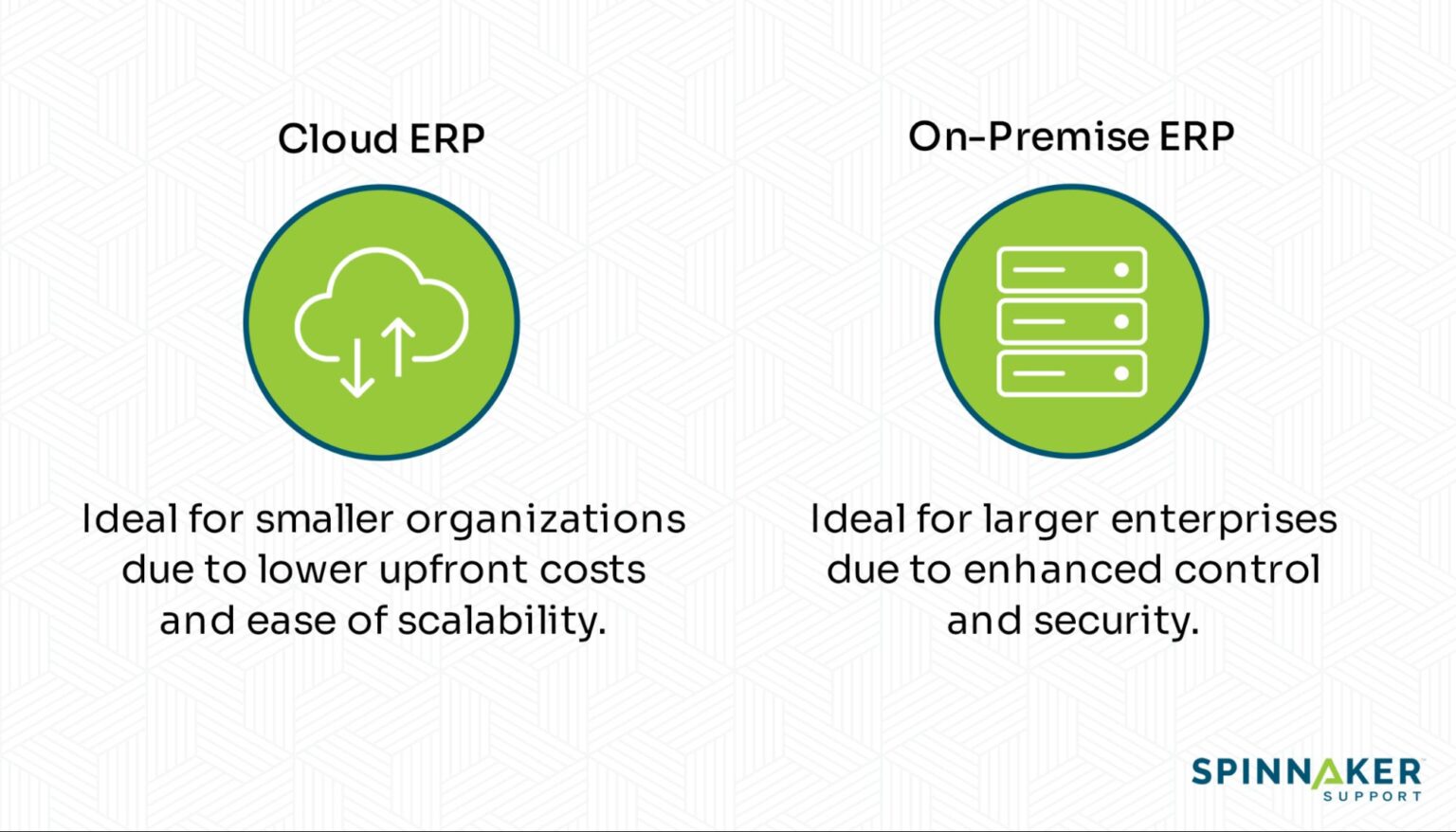Enterprise Resource Planning (ERP) systems have become essential for businesses looking to streamline operations, improve efficiency, and gain a competitive edge. However, a critical decision arises when choosing the type of ERP system: cloud-based or on-premise. Each option has its own benefits and challenges, and selecting the right one depends on your business needs, budget, and long-term goals.
Understanding Cloud-Based ERP Systems
Cloud-based ERP systems are hosted on remote servers and accessed via the internet. This model has gained significant popularity over the years, particularly due to advancements in cloud technology. Here are some key characteristics and advantages of cloud-based ERP systems:
Benefits of Cloud-Based ERP:
- Lower Upfront Costs: Cloud ERP systems are typically offered on a subscription basis, which eliminates the need for hefty initial investments in hardware and infrastructure.
- Scalability: Cloud-based systems are easily scalable, allowing businesses to adjust their usage and add features as they grow without significant upgrades or downtime.
- Automatic Updates: Cloud vendors handle system updates and maintenance, ensuring that you always have access to the latest features and security patches.
- Accessibility: With a cloud-based ERP, you can access your system from anywhere with an internet connection, making it ideal for companies with remote teams or multiple locations.
- Rapid Deployment: Cloud ERP solutions can be deployed more quickly than on-premise systems, as they don’t require extensive setup or installation of hardware.
- Reduced IT Burden: Since the vendor manages the infrastructure, your IT team can focus on more strategic initiatives rather than daily maintenance tasks.
Challenges of Cloud-Based ERP:
- Ongoing Subscription Costs: While upfront costs are lower, cloud ERP systems come with ongoing subscription fees, which can add up over time.
- Limited Customization: Cloud ERP systems may offer less flexibility for deep customization compared to on-premise systems, as customization is often limited by the vendor’s offerings.
- Data Control: Your data is hosted off-site, which might raise concerns about data security and control, depending on your industry’s compliance requirements.
Understanding On-Premise ERP Systems
On-premise ERP systems are hosted locally on a company’s own servers and infrastructure. This traditional ERP model is still preferred by some businesses, particularly those with specific needs for data control or high levels of customization.
Benefits of On-Premise ERP:
- Full Control Over Data: On-premise ERP allows you to have complete control over your data, which can be a significant advantage for businesses with strict compliance or regulatory requirements.
- Customization Capabilities: On-premise ERP systems offer more extensive customization options, allowing businesses to tailor the system to meet unique operational needs.
- Long-Term Cost Savings: Although the initial investment is higher, on-premise ERP can offer cost savings in the long run by avoiding subscription fees. After the system is implemented, maintenance costs tend to stabilize.
- Integration with Existing Systems: On-premise ERP systems may be easier to integrate with legacy systems and other business applications that are hosted on-site.
Challenges of On-Premise ERP:
- Higher Initial Investment: On-premise ERP requires significant upfront costs for hardware, software, and installation. Additionally, there may be ongoing costs for maintaining and upgrading the system.
- IT Maintenance and Support: The responsibility for maintaining and updating the ERP system lies with your in-house IT team, which can add to operational overhead.
- Slower Deployment: Implementing an on-premise ERP system can take longer, as it involves setting up physical servers and configuring the software to meet specific business requirements.
- Limited Remote Access: Accessing an on-premise ERP remotely can be challenging without setting up a secure virtual private network (VPN) or similar solution.
Factors to Consider When Choosing Between Cloud-Based and On-Premise ERP
When deciding between a cloud-based or on-premise ERP system, consider the following factors:
- Budget: If you have limited capital for a large upfront investment, a cloud-based ERP may be more feasible. On the other hand, if you prefer a long-term solution with fewer ongoing costs, an on-premise ERP might be a better fit.
- Customization Needs: If your business requires a highly customized ERP system to accommodate specific workflows, an on-premise solution may offer more flexibility. However, cloud ERP solutions have become increasingly customizable, so evaluate the extent of your customization needs.
- IT Resources: Companies with limited IT staff or infrastructure may benefit from a cloud-based ERP system since the vendor handles most of the maintenance and updates. If you have a robust IT team capable of managing an on-premise system, this option could work for you.
- Scalability: If your business is growing rapidly or has fluctuating needs, cloud-based ERP systems are generally more scalable. On-premise systems, while scalable, can require significant additional hardware and software upgrades to support growth.
- Data Security and Compliance: For industries with strict compliance requirements or sensitive data, on-premise ERP offers greater control. However, many cloud ERP vendors now offer advanced security features that comply with regulations such as GDPR, HIPAA, or industry-specific standards.
- Remote Work and Accessibility: If remote access and mobility are key priorities, a cloud-based ERP system provides seamless access from anywhere. An on-premise system may require additional setup to enable remote access, which could be a drawback for highly distributed teams.
Conclusion
Both cloud-based and on-premise ERP systems have their own set of advantages and drawbacks. Cloud ERP systems offer flexibility, scalability, and ease of use, making them ideal for growing businesses or those with limited IT resources. On-premise ERP systems, on the other hand, provide more control, customization, and long-term savings but come with higher upfront costs and more significant IT requirements.
Ultimately, the right choice depends on your business’s specific needs, goals, and constraints. Consider your budget, IT infrastructure, customization requirements, and long-term growth plans before making a decision. Whether you choose a cloud-based or on-premise ERP, a well-chosen system will provide significant benefits by streamlining operations and enhancing business efficiency.
